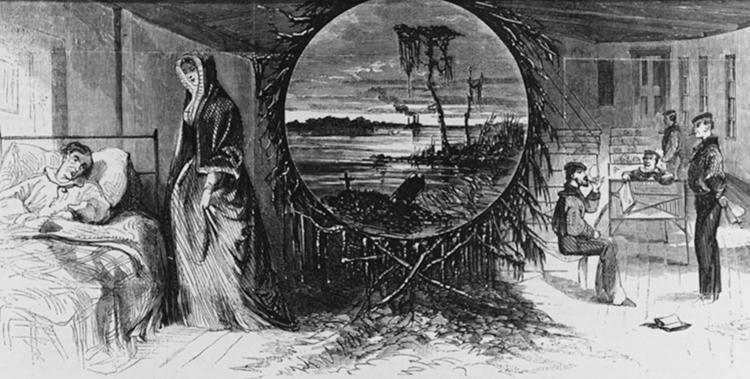Profiles In Nursing
Ann Bradford Stokes (1830–1903), From Civil War “Contraband” to U.S. Navy Pensioner
After escaping the plantation where she was enslaved, Stokes boarded a Union hospital ship and volunteered to become a Navy nurse.

After escaping the plantation where she was enslaved, Ann Bradford Stokes boarded a Union hospital ship and volunteered to become a Navy nurse. Later, she became the first woman in U.S. Navy history to be granted a military pension for her own service.
Free to Make History
Stokes was born in 1830 in Rutherford County, Tenn. Little is known about her early history, except that until late in her life, she could neither read nor write (skills most slaves were forbidden to learn).
In early 1863, she escaped from the plantation where she had been enslaved and found refuge aboard the U.S.S. Red Rover, a former Confederate steamship that the Union had recently captured and recommissioned as a hospital ship.
Under the 1861 Confiscation Act, slaves who escaped from Confederate states to Union territory were officially considered confiscated enemy property, known as “contrabands.”
Although contrabands would not be sent back to their former masters, their legal status remained ambiguous until President Lincoln signed the Emancipation Proclamation on Jan. 1, 1863. Many contrabands spent the war in grim Union refugee camps.
Aboard the Red Rover, Stokes found another option. The hospital ship’s complement included several sisters of the Holy Cross of Notre Dame, who had recently come aboard the ship to act as nurses. The sisters needed all the help they could get, so they began enlisting female contrabands to join them as nurses’ aides.













